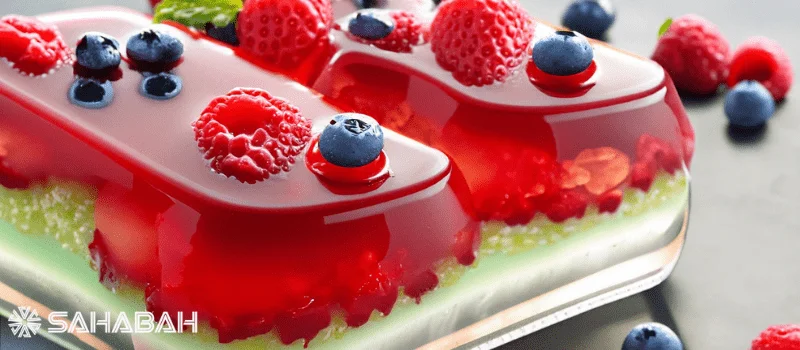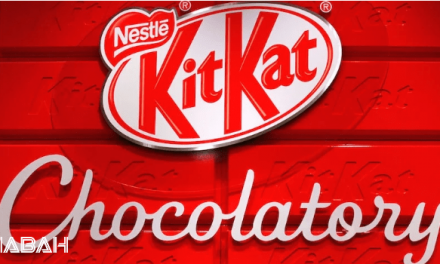Welcome to a comprehensive guide on the halal status of gelatin, where we delve into the intriguing world of Jello and its compatibility with Muslim dietary restrictions. As a Muslim, I understand the importance of ensuring that our food adheres to our religious beliefs.
In this article, we will explore the origins of gelatin, its production process, and the various opinions surrounding its halal status. Join me on this enlightening journey as we uncover the truth behind Jello, discover the existence of Halal JELL-O®, and gain a deeper understanding of the complexities surrounding gelatin in the context of Islamic dietary laws.
A Comprehensive Guide to Jello
Jello is a popular gelatin dessert that has been around for over a century. However, there is an ongoing debate among Muslims about whether or not Jello is considered halal.
Definition of halal and haram in Islam
- Halal refers to anything permissible to eat or use under Islamic law
- Haram refers to anything prohibited under Islamic law
“Halal” is an Arabic word meaning lawful or permitted. In reference to food, it is the dietary standard, as prescribed in the Qur’an. The opposite of halal is haram, which means unlawful or prohibited.
Popularity and ubiquity of Jello desserts
Jello is a typical dessert served in many American households and events. Its popularity stems from some of the following qualities:
- Affordable convenience food
- Fun colors and flavors
- Can be molded into various shapes and forms
- Widely used in North American cooking and baking
Debate over whether gelatin used in Jello is halal
The gelatin used to create Jello’s jiggly, bouncy texture is the source of the controversy. There are differing opinions on whether this animal-derived ingredient is permissible for Muslims to eat.
Table summarizing the debate:
| Viewpoint | Reasoning |
|---|---|
| Gelatin is halal | Gelatin has undergone extensive processing, removing impurities |
| Gelatin is haram | Gelatin derived from pork, or even cattle, may not be halal |
This article will explore the evidence behind each perspective and explain the considerations for Muslims seeking to determine if Jello can be part of a halal diet.
Here is a draft of Section II in Markdown format:
Background on Gelatin Production
Gelatin is a key ingredient used to give Jello its distinctive texture and appearance. Understanding where gelatin comes from and how it is made can provide insight into the debate around its permissibility.
Gelatin is a protein product derived from collagen in animal bones and skins
Gelatin is a protein substance that is derived from collagen. It is essentially a meat by-product and is therefore not considered vegetarian. Gelatin is derived from the bones, skins, and connective tissue of animals, usually cows and pigs.
Gelatin contains a distinctive amino acid profile that gives it unique properties, such as the ability to form gels.
Main sources are pigs and cows
The primary sources of gelatin are:
- Pig skins
- Cowhides and bones
- Fish bones and skins
Pig skins yield the highest quality gelatin. However, cowhides and bones are a more common source, especially for commercial gelatin.
Gelatin goes through extensive processing and chemical treatment
To extract the gelatin from animal parts:
- Bones and hides are crushed and undergo an acid treatment
- This dissolves the collagen into gelatin
- The gelatin solution is filtered and purified repeatedly
- Chemicals may be used for bleaching and stabilization
- The final product is dried and ground into powder
This extensive processing removes impurities from the original source. However, the origin remains a concern for halal considerations.
Status of Gelatin in Jello
Understanding how gelatin is sourced and processed is key to evaluating if modern Jello products are halal.
Most Jello today produced using beef gelatin
Today, the gelatin that is used to make Jell-O is extracted primarily from cow hides and bones. Some kosher and halal products may contain fish gelatin. Most Jell-O products no longer contain pork-derived gelatin.
Beef-derived gelatin has become the dominant source for major Jello brands today.
Some brands certified halal, others not disclosed
- Kraft’s Jello brand has some products certified halal
- Many store brands do not disclose gelatin sources
- Difficult for consumers to verify if there is no certification
“Jell-O was tested and certified Halal in 1998. At that time, the production line was dedicated to Halal production and only beef products were used. The production line was eventually changed back and Jell-O no longer carries Halal certification.”
- From a facebook user
Difficulty determining source of gelatin for consumers
Without clear halal certification or ingredient sourcing information, verifying gelatin sources in Jello is challenging:
- List of ingredients may only state “gelatin”
- Manufacturing processes can change over time
- Requires consumer diligence and engagement with brands
This lack of transparency makes avoiding doubtful ingredients difficult for Muslims seeking halal products.
Gelatin Alternatives for Concerned Muslims
For Muslims wishing to avoid questionable gelatin sources, some alternatives to standard Jello products exist.
Seek out certified halal brands of gelatin and Jello
- Some brands certify their gelatin and Jello as halal
- Halal certification involves oversight of ingredients and processes
- Assures concerned Muslim consumers
Look for the halal certification symbol on the package. This ensures that reputable halal certification organizations have vetted the product’s ingredients and means of production.
Use substitutes like agar agar, pectin, locust bean gum
- Agar agar and pectin make good gelatin substitutes
- Derived from plants, not animals
- Can replicate jiggly, gummy texture of gelatin
Make homemade jelly desserts without gelatin
- Many fruit-juice-based jelly recipes don’t require gelatin
- Allows control over all ingredients
- Offers creative options for unique flavors
With diligence and experimentation, halal-conscious Muslims can find or formulate gelatin-free Jello alternatives.
Is Jello Halal FAQ
Jello is not inherently halal because it usually contains gelatin derived from animal sources. However, halal-certified jello products are available in the market that use halal gelatin or gelatin alternatives.
What is gelatin?
Gelatin is a protein obtained from collagen, typically derived from animal bones and skin. It is commonly used as a gelling agent in many food products, including jello.
Can jello be halal if it contains gelatin?
In most cases, jello containing gelatin derived from pig or non-halal sources would be considered haram (forbidden in Islamic dietary law) because it comes from an animal not slaughtered according to Islamic guidelines. However, if the gelatin used in jello is from a halal source, such as halal beef gelatin, it can be considered halal.
Are there halal jello products available?
Yes, there are companies that produce halal-certified jello products. These products are made using halal gelatin obtained from permissible sources, such as halal beef gelatin or plant-based gelatin alternatives.
Can I use gelatin alternatives in place of gelatin?
If you prefer to avoid gelatin derived from animals, you can use gelatin alternatives such as agar, which is derived from seaweed, or plant-based gelatin substitutes. These alternatives are often used as a vegetarian or halal-friendly option in jello and other recipes.
Is Jell-O® halal?
The term “Jell-O®” specifically refers to a brand of gelatin-based products, including jello. The halal status of Jell-O® products depends on the type of gelatin used. It is essential to check the label or confirm with the manufacturer if the gelatin used in Jell-O® is halal or from permissible sources.
Is gelatin that is used in jello always haram?
No, gelatin used in jello is not always haram. It depends on the source of the gelatin. Gelatin derived from halal sources, such as halal beef gelatin, would be considered permissible and halal.
What does Islamic dietary law say about gelatin?
Islamic dietary law considers gelatin derived from pig or non-halal sources as haram
Conclusion
In summary, there are good faith arguments on both sides of the debate on whether modern Jello products are halal.
Summary of evidence and arguments
- Majority scholarly opinion considers properly sourced beef gelatin to be halal
- Minority view believes gelatin from any animal is doubtful
- Modern Jello mostly uses beef gelatin, but transparency issues remain
Suggestions for Muslims uncertain of Jello’s halal status
Muslims unsure about Jello’s halal status can:
- Seek out certified halal brands
- Substitute with plant-based gelatin alternatives
- Make homemade jelly without gelatin
Need for improved transparency from food companies
Food manufacturers should disclose the source of their gelatin. Halal-conscious consumers should be able to make informed decisions about the products they buy.
Greater transparency from gelatin and Jello manufacturers would help assuage concerns in the Muslim community.
In conclusion, while the halal status of Jello remains debated, alternatives exist for Muslims wishing to exercise caution.





